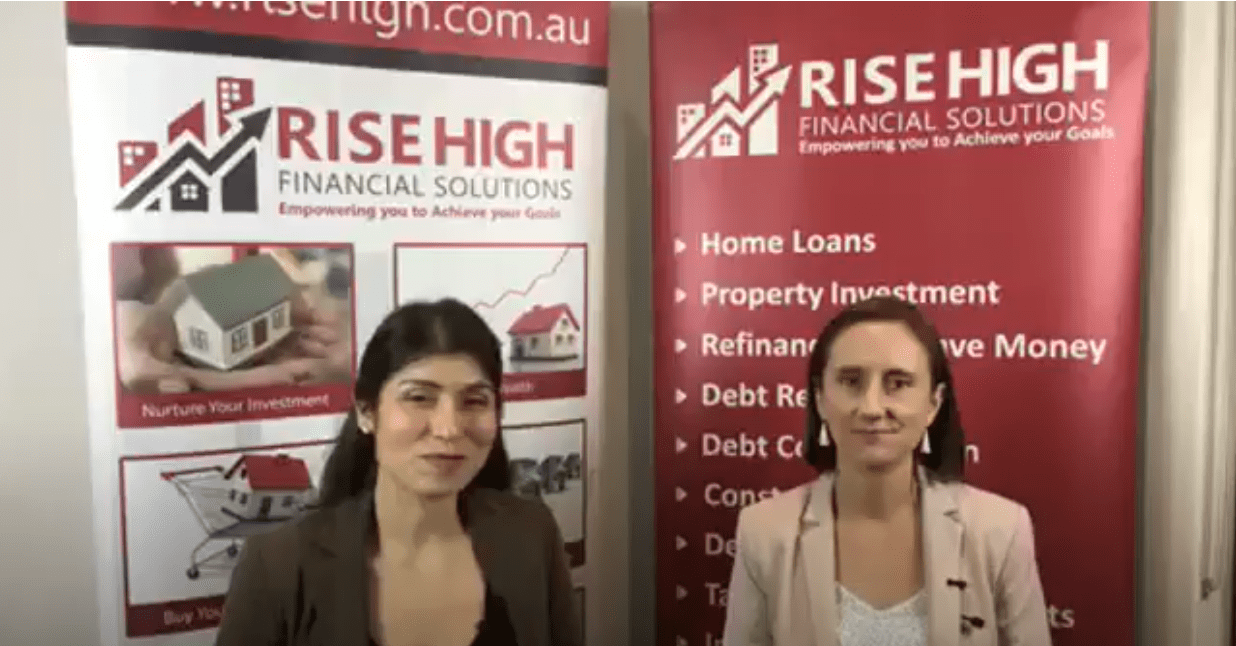Many of our clients have approached us wondering whether they should panic about announcements on further interest rate rises that have been all over the news lately. Deutsche Bank’s chief economist has predicted the cash rate to hit 4.1% by August this year, suggesting a further 1% increase in interest rates happening within the next 6 months.
What this would imply for someone with a mortgage loan of $500,000 would be an extra $400 per month spent on repayments.
Keeping this news in mind, we approached South Australia’s Best Newcomer broker Tarkin Brown, and multi-award-winning broker Kristin Tunbridge, looking for their expert tips for existing and future borrowers.
Their main message? Don’t panic!
Forecasts do vary from economist to economist and there are plenty of different opinions and forecasts out there. As much as forecasts can provide a general indication of whether the market might be headed, no one can really predict where rates are heading, so the best you can do is focus on what you CAN control to protect your peace of mind.
Interest rate rises and today’s lending market
Throughout the past months, interest rates have definitely increased rapidly.
However, it is important to keep in mind that where we are currently sitting with interest rates, is still under the median average interest rate for a long-term loan in Australia. We have just had it too good for too long!
As we transition and adjust to a new normal, most of our clients are wondering…
Should I be fixing my existing loan?
The answer is: it depends.
Generally, fixed rates do work “ahead” of variable rates, which means fixed rates try and predict where rates are going to head in the upcoming years.
As a result, fixing your rate today would come at a premium cost, but could actually be the best decision for you if what you are looking for is peace of mind, predictability around what your expenses will be, and greater certainty when it comes to budgeting.
If you are the type of borrower who will stress every month of the year following interest rate rise news, fixing your loan might be the healthiest way to keep your stress at bay.
What about keeping it variable?
If you are the kind of person who can retrospectively look and keep in mind that a variable loan might still provide you with access to a better rate than a fixed loan would long-term, then keeping it variable might still be a great choice.
The logic in this comes back to the fact that fixed rates try and predict where rates will head in the upcoming years.
Choosing to go fixed might mean you are paying for a “premium” that the RBA’s rate increases might not reach. Meaning you could ultimately be better off overall with a variable rate.
Our takeaway
There is no way really to beat the market. But what you CAN do is work around what is going to be the best option for YOU, making your life and budgeting easier.
The best decision will really depend on what you feel most comfortable with, and what better suits your needs.
At Rise High, we totally understand that mortgage-related decisions are big life decisions! We understand the anxiety that might show up as a result of the uncertainty in our current lending environment and are always here to support you!
Ultimately, talking to your Rise High Broker and educating yourself on the pros and cons that come with fixed vs variable rates will help you make the best decision for your existing home loan or investment property loan financial future.
Our Rise High TV channel has also got plenty of content to educate and empower you on this journey!
Here’s a bonus tip!
Another great alternative that you might consider is actually increasing the amount of your current repayments while holding tight to a variable rate if you are currently in a financial condition to do so.
Forcing yourself to increase your repayments can help you ease into a more conservative lifestyle that would suit potentially higher repayments, without locking yourself into the commitments of a fixed-rate loan.
Choosing to go that extra mile today might help you build a bit of a buffer and ultimately absorb any future rate rises.
Is your fixed rate expiring this year?
If so, NOW is the perfect time to increase your repayments as much as possible to make the most out of your current rate while it lasts!
If you were fortunate to lock in your fixed rate at 2% or so before the interest rate rises kicked in, you are likely to be paying over 2% more in repayments monthly once your existing fixed rate does expire. Choosing to really push yourself and contribute as much as possible on repayments now will ultimately help you reach your goals faster and save you money!
Alternatively, you can also want to explore alternatives such as refinancing or debt consolidation loans to keep your rate competitive, save money and pay down your debts sooner!
If you are just looking to get into homeownership, or are concerned about the future of your finances, our team at Rise High is here to help! You can learn more about your home loan or reach out to our brokers for personalized advice to suit your financial needs and circumstances!


